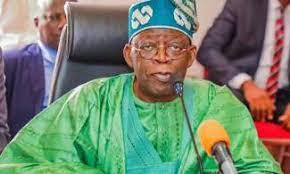President Muhammadu Buhari has renewed the appointment of Dr. Olusegun Philip Ojo for the second time as the director general, National Agricultural Seed Council (NASC).
Ojo was first appointed in May 2015, a time when the Council and the seed sector were faced with myriad of challenges and dwindling resources due to the national and global economic recession and farmers low awareness of the need for improved quality seeds.
Prior to his appointment as DG in 2015, he had worked as a seed scientist with 35 years of working experience in the Seed Industry. His areas of special expertise include Seed Certification and Quality Control, Seed Production, Seed Testing, Seed Conditioning, Seed Storage and Capacity Building.
Since his appointment, Ojo has deployed his wealth of experience in transforming the Council into an innovative agency that has recorded tremendous growth and progress, while the momentum towards the actualisation of its mandate continuously increases.
Under his leadership, Nigeria through the Council is benefiting from the regional harmonisation of regulation within the ECOWAS as the country is so far the only one capable of moving seeds to other countries as a result of its advanced seed system, leading to numerous job and wealth creation opportunities along the seed value chain.
Sales of poor and adulterated seeds to farmers by unscrupulous merchants who defraud farmers and give companies a bad name are at their barest minimum as the task force are working tireless to arrest fake seed producers and sellers.
Those dumping poor quality seeds and planting materials into Nigeria are being stopped due to the agency’s better law enforcement and coordination of seed import and export.
Other achievement under his leadership includes: The development of a seed system for vegetatively propagated crops such as yam and cassava. Nigeria is indeed the first, world over, to establish a yam seed certification system; enhancement of quality of traded seeds through the introduction of diagnostic certification, which is a first in West Africa; the introduction of a turnkey National Seed Tracking System that has enhanced traceability and real time tracking and documentation of seed fields across the country possibly; confidence built in the practice of seed technology, production, use and processing of quality seeds and planting materials.



